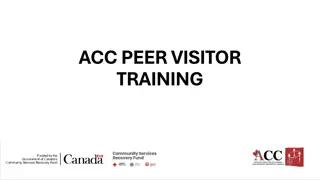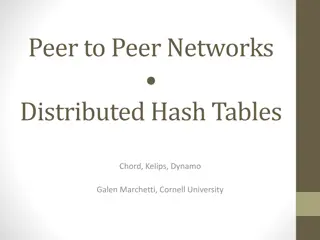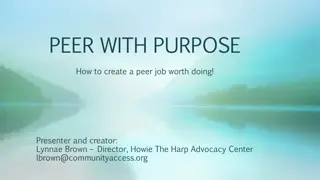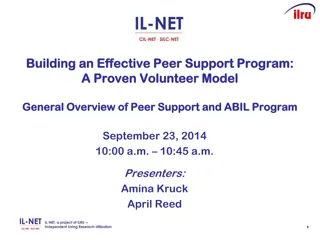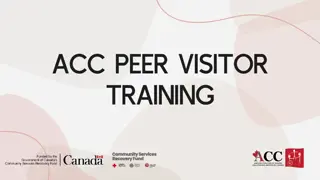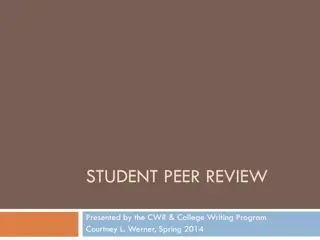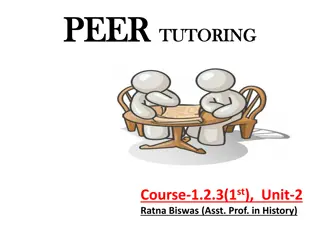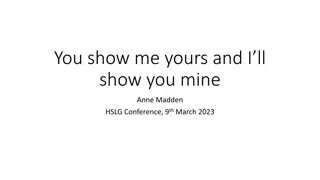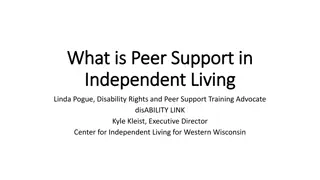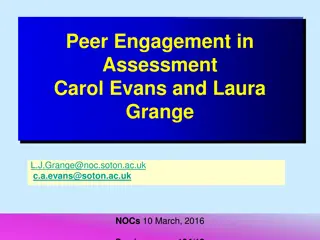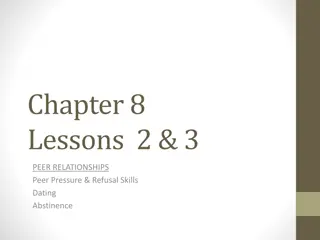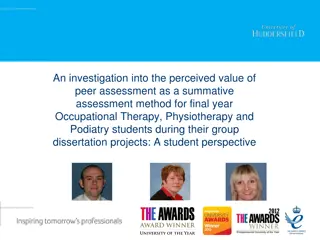Analysis of 'The Quarrel' by Maxine Kumin: Word-Level Activities and Peer Assessment
Explore the concept of quarrel through word-level tasks and writing activities based on Maxine Kumin's poem. The analysis includes discussions on similar words to quarrel, role-play scenarios, examining word choices, and understanding the moral of the story. Peer assessment and target setting are integrated into the learning process.
Download Presentation

Please find below an Image/Link to download the presentation.
The content on the website is provided AS IS for your information and personal use only. It may not be sold, licensed, or shared on other websites without obtaining consent from the author. Download presentation by click this link. If you encounter any issues during the download, it is possible that the publisher has removed the file from their server.
E N D
Presentation Transcript
The Quarrel By Maxine Kumin Analysis Word level work Writing tasks Self and Peer assessment Review Target setting
1) Discuss with a partner and make notes on what you understand by the word quarrel . 2) Look up the word quarrel in a thesaurus and write down similar words to quarrel . 3) Think about a time when you have had a quarrel with someone. Tell your partner about it using one of the words from the thesaurus.
Said a lightning bug to a firefly, "Look at the lightning bugs fly by!" "Silly dunce!" said the fly. "What bug ever flew? Those are fireflies. And so are you." What has started this quarrel? What words show us that one creature is being rude to the other? With a partner, take it in turns to say the words spoken to each other. How did you feel?
"Bug!" cried the bug. "Fly!" cried the fly. "Wait!" said a glowworm happening by. Thesaurus work "I'm a worm," squirmed the worm. "I glimmer all night. You are worms, both of you. I know that I'm right." Can you find 2 other words in your thesaurus which would work where squirmed and glimmer are? Write them on your worksheet. Why has the poet chosen squirmed and glimmer Explain why the poet s word choices are effective.
Colour in or underline the words and punctuation which show us that the quarrel is getting more heated. "Fly!" cried the fly. "Worm!" cried the worm. "Bug!" cried the bug. "I'm standing firm!" Back and forth through the dark each shouted his word Till their quarrel awakened the early bird. What do you think might happen next?
"You three noisy things, you are all related," She said to the worm, and promptly ate it. What do the What do the red words red words tell us about tell us about the early the early bird? bird? With a snap of her bill she finished the fly, And the lightning bug was the last to die. What does the early bird think about the creatures? How did she end the quarrel?
How can humans be glowers and glimmerers? How can humans Shine ? All glowers and glimmerers, there's a MORAL: Shine if you must, but do not quarrel. What is the message What is the message of this poem? of this poem?
You may choose to respond to these tasks by writing a poem or a story. Make an acrostic poem from the word QUARREL. Research and make a fact file on glowworms and fireflies. Include a Day in the Life of a . section. Use facts, opinions, images, bullet points and text boxes. Write about a time when you had a quarrel . You could begin like this: What a day! I knew that now I could never trust my best friend again! Imagine that you were the early bird in the poem. Write an account from your point of view. You could start like this: What a racket! Those creatures have been arguing now for hours and they are starting to make my feathers flutter! Choose a task. Don t forget to plan!
Review! Peer or self assess the writing task. Have you: Used accurate punctuation and spelling Used interesting vocabulary Used a range of sentences (simple and complex) Organised your writing into paragraphs or verses (if you did a poem) Used some descriptive or poetic techniques, for example rhyme, repetition, alliteration or onomatopoeia? Set yourself a target to improve from this list.




